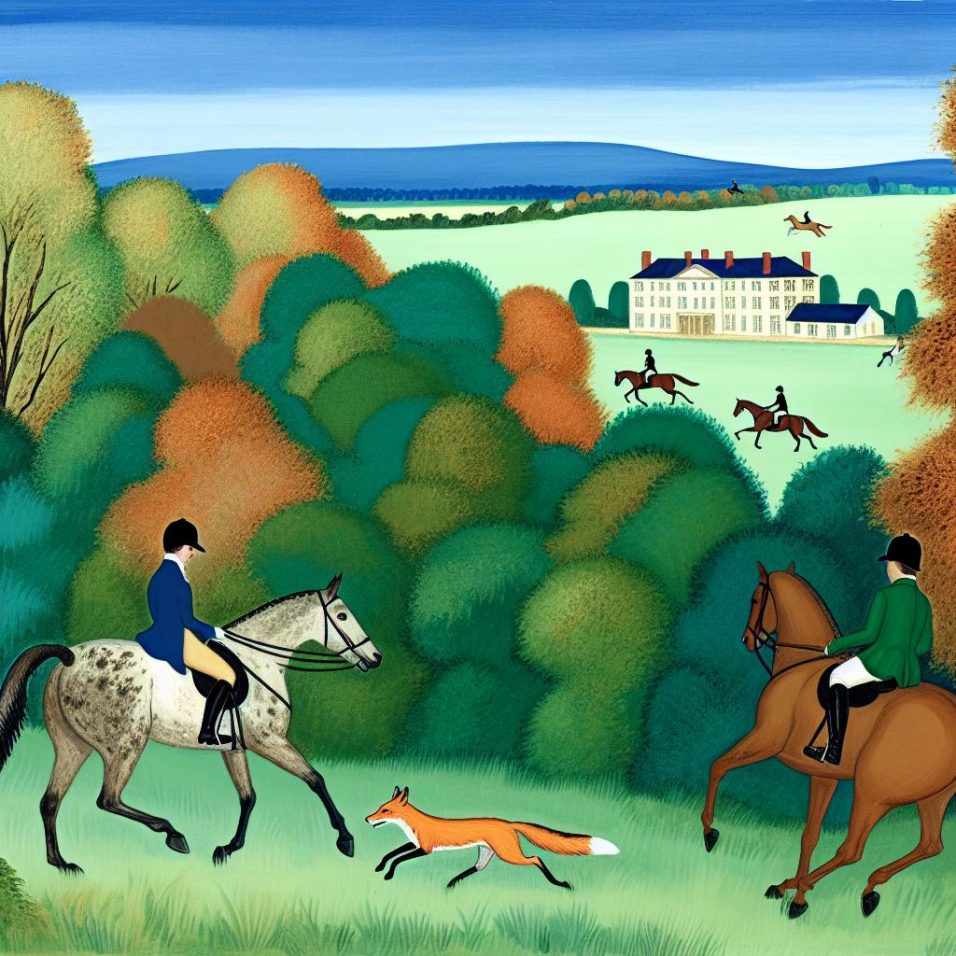The Rich History of Fox Hunting in Virginia’s Hunt Country
Virginia’s Hunt Country, nestled in the northern regions of the state, presents a narrative steeped in tradition and cultural heritage. The sport of fox hunting, introduced by European settlers in the 18th century, has taken on a significant role in the cultural landscape of this area. These rolling hills and expansive landscapes offer the ideal setting for a pastime that is not just a sport but an integral part of Virginia’s historical identity.
The Origins of Fox Hunting in Virginia
The roots of fox hunting in Virginia trace back to the colonial period, with the first recorded mounted hunt in 1730. Influenced by the practices of English nobility, it quickly became a favored sport among the local elite. The allure of the sport was not solely its recreational aspect but also its ability to exemplify social status and class. Over centuries, fox hunting in Virginia has adapted to changing social norms and cultural shifts while retaining its essential elements and ceremonies that reflect its storied past.
Preservation of Traditions
Adherence to tradition is a hallmark of Virginia’s fox hunting culture. Participants in these events don formal hunting attire, with the famous “pinks,” or red coats, being a distinctive feature. Etiquette and protocols observed during these hunts are reminiscent of the rituals established long ago in England. This love for custom and ritual goes beyond mere nostalgia; it is a way of preserving a link to the past and ensuring that the spirit of fox hunting endures despite modern challenges and alterations to some of its practices.
Role of the Hounds
In fox hunting, hounds play a pivotal role. These animals, often a mix of breeds such as the English and American Foxhounds, are bred and trained for superior scent-tracking abilities. Their skills are honed over years by experienced trainers, creating a synergy between hunter, horse, and hound. The bond between the hounds and the hunters is one of mutual respect and collaboration, essential for a successful hunt and underscores the importance of tradition in maintaining the sport’s integrity.
The Hunt Clubs of Virginia
The presence of esteemed hunt clubs in Virginia’s Hunt Country is a testament to the sport’s longstanding significance. These clubs are custodians of the fox hunting tradition and actively engage in organizing events, competitions, and community gatherings. Named clubs like the Middleburg Hunt and the Warrenton Hunt are not just social institutions but also play a key role in the perpetuation of fox hunting traditions. They promote education about the sport, conservation of the hunting grounds, and foster a community where both old and new generations can appreciate the rich heritage of fox hunting.
Modern Fox Hunting Challenges
Despite its entrenched history and community role, fox hunting in Virginia is not without its challenges. Significant among these are modern environmental concerns, animal welfare arguments, and the pressures of urban development. Urban sprawl threatens the open fields essential for traditional fox hunting activities, creating tension between the needs of progress and the desire to maintain cultural heritage. The debate over animal welfare has prompted many hunting circles to reevaluate the nature and conduct of their activities, promoting conservation as a core value.
Conservation efforts have become a crucial aspect of modern fox hunting practices. Many in the fox hunting community have recognized the importance of preserving open spaces not only for the continuation of the sport but also in the context of ecological sustainability. Hunt clubs, collaborating with local governments and environmental organizations, have taken initiatives to protect and manage land to ensure that the natural habitats of both foxes and other wildlife are conserved for future generations.
Fox hunting in Virginia Hunt Country is a vibrant example of living history. It continues to draw interest and participation from a diverse group of individuals who are keen not only on the thrill of the chase but also on being part of a tradition that is at once historical and contemporary. Those looking to engage further with fox hunting can benefit from the resources offered by their local hunt clubs.
By visiting the digital resources of various hunt clubs, individuals can find detailed information about statewide events, educational content, and guidelines about participating in fox hunting. Newcomers can enjoy a first-hand experience of the tradition through introductory programs and events organized by these clubs. This initiative ensures the preservation and perpetuation of fox hunting, enabling enthusiasts to connect deeply with this age-old tradition.
In conclusion, while Virginia’s fox hunting culture faces various 21st-century challenges, its resilience lies in its adaptability and commitment to preservation. The customs, characters, and contributions of fox hunting to Virginia’s societal frameworks underscore its importance beyond being a mere sport. Its evolution reflects broader societal shifts, mirroring Virginia’s journey from its colonial roots to the modern era, while the ongoing dialogue around fox hunting ensures that this tradition remains relevant and respected.


